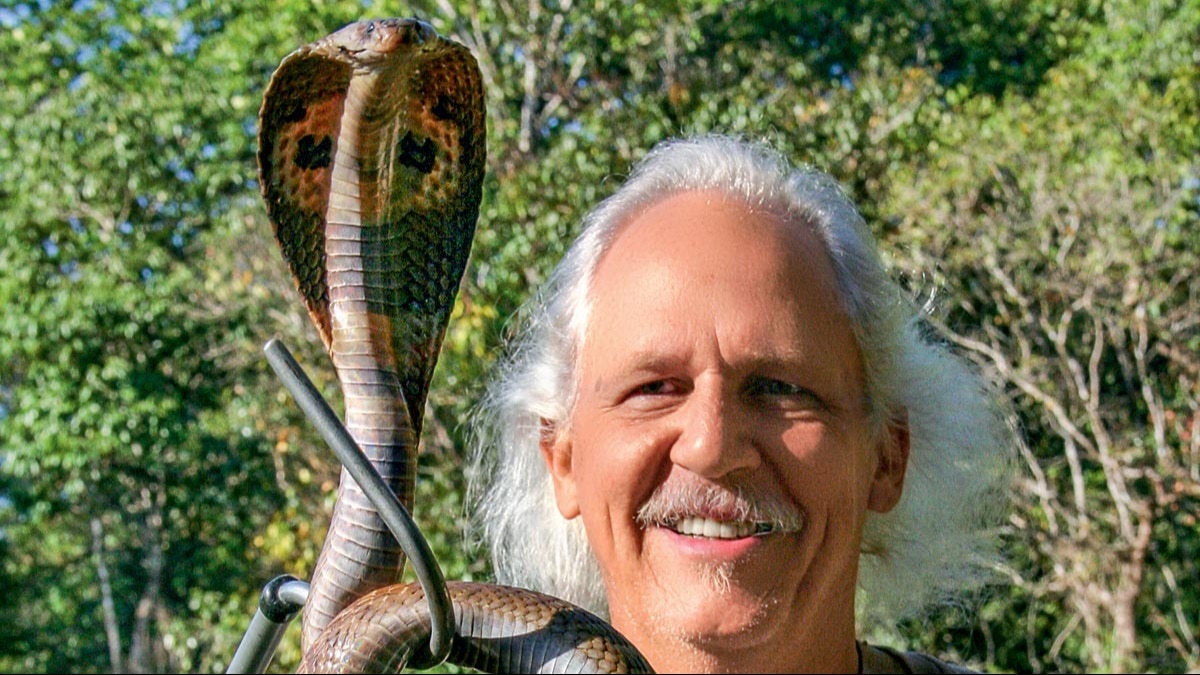
ROMULUS WHITAKER | GREAT SNAKES!
Romulus Whitaker has too many answers. The question: Any favourite snake species? "There's lots and lots of favourites," he says. Then offers up two: the eastern diamondback rattlesnake and the indigo snake. These and others star prominently in Snakes, Drugs and Rock 'n' Roll: My Early Years (HarperCollins), an account of Whitaker's wild and wondrous life in India and the US, co-written with his wife, the writer and filmmaker Janaki Lenin.
Whitaker, 80, often known affectionately as the 'Snakeman of India', is among the country's best-known conservationists. He established the Madras Snake Park, the Madras Crocodile Bank Trust and has worked extensively on India's rainforests. In 2018, he received the Padma Shri.
Snakes... is a chatty, delightful, anecdote-driven book of a richly lived life—the first of three planned volumes—and details Whitaker's childhood and adolescence.
Whitaker was born in the US in 1943 and raised by a single mother in New York state, before they relocated to Bombay when she married an Indian, Rama Chattopadhyay, son of Harindranath and Kamaladevi Chattopadhyay. "I felt like I'd landed on another planet," he writes. "My new home and country were far more exciting than anything I had experienced in the States in my eight-year existence."
The wildlife bug had already taken root in America. In India, it blossomed further. Whitaker hung out with fishermen in sleepy Juhu, shot sparrows in Worli, kept a pet snake and delighted in the pet shops of Crawford Market. He went to boarding school in Kodaikanal where he embraced the fauna of the Western Ghats.
It was always going to be a life with animals. There was no plan B. "Never," he says. "I'm totally obsessed. Still."
India was home then, as it is now, and there's no sense of the white boy feeling like an outsider. "I just felt totally normal and totally part of India," says Whitaker, who speaks Hindi and Tamil. "Sometimes I look in the mirror and say God, there's a white guy! I naturally vibed with India and remained that way."
After finishing school, Whitaker took a year off and joined a taxidermist in Mysore, then worked at a farm run by a German priest in Tamil Nadu. He moved back to the US for college, but dropped out after a year ("academics sucks").
A string of odd jobs followed—snake-catcher, travelling salesman, sailor. The most memorable patch of his adolescent years are from snake-hunting in Arizona and Florida, and working in a serpentarium. "I like being in the wilds alone. I don't like talking to people," he says. One friend even tells him: you seem to like snakes more than people.
"I probably keep repeating the same thing, but they're utterly fascinating," he says. "They're utterly alien to everything else that you see around you. In a way [the fascination] also fed my ego because I was fascinated with something that other people were scared to death of or hated."
In the introduction, the authors clarify this is an autobiography rather than a memoir. "In my understanding, a memoir has a very sharp focus," says Lenin. "You write a memoir about a particular thing rather than every single detail of your life. So, he could have written a memoir as a snake person, in which case, half the book that you read would be irrelevant."
The full story includes Whitaker's seemingly incongruous passion for hunting, at one point "really rabid". "By revealing my bloody hands and early love of destruction, whether it be of animal life or explosives, you, the reader, can see the real me with all the warts," he writes. But, as he points out, he was not the only one.
"I think if you look at all the people who made that switch from hunting to conservation, they all were hunters because that was the tradition of their fathers and their grandfathers, so they were out in the wild," says Lenin. "And then the wild works its magic on you. And then you say, 'Oh, this [species] is having a problem and maybe you shouldn't hunt it so much anymore', and then you start changing. That's possibly what happened for that generation."
The book was written over four years, with Lenin helping shape the narrative. "Janaki will gladly edit stuff and chuck it out," says Whitaker. "She's a trained film editor. For better or for worse, she's gotten rid of a lot of junk. We've tried to keep focused on the more interesting stuff."
And there's plenty to be had. Even as he details these varied experiences Whitaker constantly flirts with death and danger—rampaging elephants, irritable cobras, stray gunshots from irresponsible humans. Sometimes the bildungsroman reads more like a survival saga or a cautionary tale. He agrees that he often feels "pretty lucky" to be alive.
And for getting to live this extraordinary life. "Man, did I luck out," he says. "From the moment I was born."
2024-02-02T13:02:41Z dg43tfdfdgfd